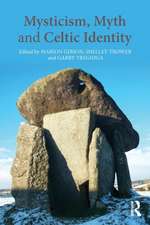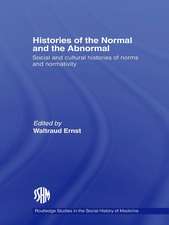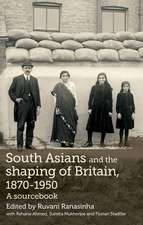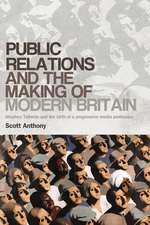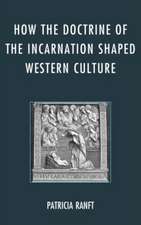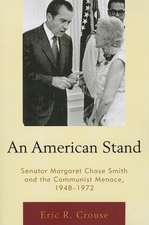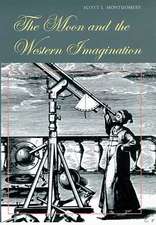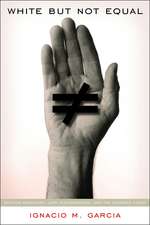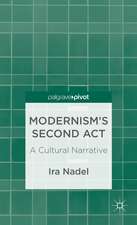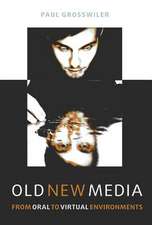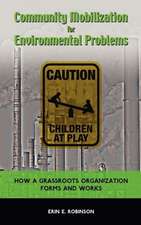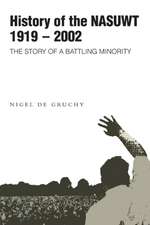Miranda: The Story of America’s Right to Remain Silent
Autor Gary L. Stuarten Limba Engleză Paperback – apr 2008
One of the most significant Supreme Court cases in U.S. history has its roots in Arizona and is closely tied to the state’s leading legal figures. Miranda has become a household word; now Gary Stuart tells the inside story of this famous case, and with it the legal history of the accused’s right to counsel and silence.
Ernesto Miranda was an uneducated Hispanic man arrested in 1963 in connection with a series of sexual assaults, to which he confessed within hours. He was convicted not on the strength of eyewitness testimony or physical evidence but almost entirely because he had incriminated himself without knowing it—and without knowing that he didn’t have to. Miranda’s lawyers, John P. Frank and John F. Flynn, were among the most prominent in the state, and their work soon focused the entire country on the issue of their client’s rights. A 1966 Supreme Court decision held that Miranda’s rights had been violated and resulted in the now-famous "Miranda warnings."
Stuart personally knows many of the figures involved in Miranda, and here he unravels its complex history, revealing how the defense attorneys created the argument brought before the Court and analyzing the competing societal interests involved in the case. He considers Miranda's aftermath—not only the test cases and ongoing political and legal debate but also what happened to Ernesto Miranda. He then updates the story to the Supreme Court’s 2000 Dickerson decision upholding Miranda and considers its implications for cases in the wake of 9/11 and the rights of suspected terrorists. Interviews with 24 individuals directly concerned with the decision—lawyers, judges, and police officers, as well as suspects, scholars, and ordinary citizens—offer observations on the case’s impact on law enforcement and on the rights of the accused.
Ten years after the decision in the case that bears his name, Ernesto Miranda was murdered in a knife fight at a Phoenix bar, and his suspected killer was "Mirandized" before confessing to the crime. Miranda: The Story of America’s Right to Remain Silent considers the legacy of that case and its fate in the twenty-first century as we face new challenges in the criminal justice system.
Ernesto Miranda was an uneducated Hispanic man arrested in 1963 in connection with a series of sexual assaults, to which he confessed within hours. He was convicted not on the strength of eyewitness testimony or physical evidence but almost entirely because he had incriminated himself without knowing it—and without knowing that he didn’t have to. Miranda’s lawyers, John P. Frank and John F. Flynn, were among the most prominent in the state, and their work soon focused the entire country on the issue of their client’s rights. A 1966 Supreme Court decision held that Miranda’s rights had been violated and resulted in the now-famous "Miranda warnings."
Stuart personally knows many of the figures involved in Miranda, and here he unravels its complex history, revealing how the defense attorneys created the argument brought before the Court and analyzing the competing societal interests involved in the case. He considers Miranda's aftermath—not only the test cases and ongoing political and legal debate but also what happened to Ernesto Miranda. He then updates the story to the Supreme Court’s 2000 Dickerson decision upholding Miranda and considers its implications for cases in the wake of 9/11 and the rights of suspected terrorists. Interviews with 24 individuals directly concerned with the decision—lawyers, judges, and police officers, as well as suspects, scholars, and ordinary citizens—offer observations on the case’s impact on law enforcement and on the rights of the accused.
Ten years after the decision in the case that bears his name, Ernesto Miranda was murdered in a knife fight at a Phoenix bar, and his suspected killer was "Mirandized" before confessing to the crime. Miranda: The Story of America’s Right to Remain Silent considers the legacy of that case and its fate in the twenty-first century as we face new challenges in the criminal justice system.
Preț: 125.29 lei
Nou
Puncte Express: 188
Preț estimativ în valută:
23.97€ • 25.03$ • 19.84£
23.97€ • 25.03$ • 19.84£
Carte disponibilă
Livrare economică 15-29 martie
Preluare comenzi: 021 569.72.76
Specificații
ISBN-13: 9780816527632
ISBN-10: 0816527636
Pagini: 212
Dimensiuni: 152 x 229 x 15 mm
Greutate: 0.31 kg
Ediția:1
Editura: University of Arizona Press
Colecția University of Arizona Press
ISBN-10: 0816527636
Pagini: 212
Dimensiuni: 152 x 229 x 15 mm
Greutate: 0.31 kg
Ediția:1
Editura: University of Arizona Press
Colecția University of Arizona Press
Notă biografică
Gary L. Stuart is an attorney in Phoenix. He is the author of six books, including The Gallup 14, a novel based on the notorious court case of 1930s New Mexico, and Miranda: The Story of America’s Right to Remain Silent
Cuprins
Foreword by Janet Napolitano
Preface
PART ONE Miranda
1 Crimes, Confessions, and Convictions
2 The Law
3 The Oral Arguments
4 The Aftermath
5 The Ongoing Debate
PART TWO Miranda in the Twenty-First Century
6 The Dickerson Case
7 The Global Reach
8 A Broader Perspective
9 The Future
Acknowledgments
Notes
Bibliography
Index
Preface
PART ONE Miranda
1 Crimes, Confessions, and Convictions
2 The Law
3 The Oral Arguments
4 The Aftermath
5 The Ongoing Debate
PART TWO Miranda in the Twenty-First Century
6 The Dickerson Case
7 The Global Reach
8 A Broader Perspective
9 The Future
Acknowledgments
Notes
Bibliography
Index
Recenzii
Foreword by Arizona Governor Janet Napolitano
"The author . . . tells the story simply, making even the most complicated and subtle legal points entirely clear. . . . Interesting, timely, and important."—Booklist
"Now embedded in the national culture and embraced across political and social divides, Miranda serves that function.”—Western Legal History
"The author . . . tells the story simply, making even the most complicated and subtle legal points entirely clear. . . . Interesting, timely, and important."—Booklist
"Now embedded in the national culture and embraced across political and social divides, Miranda serves that function.”—Western Legal History


